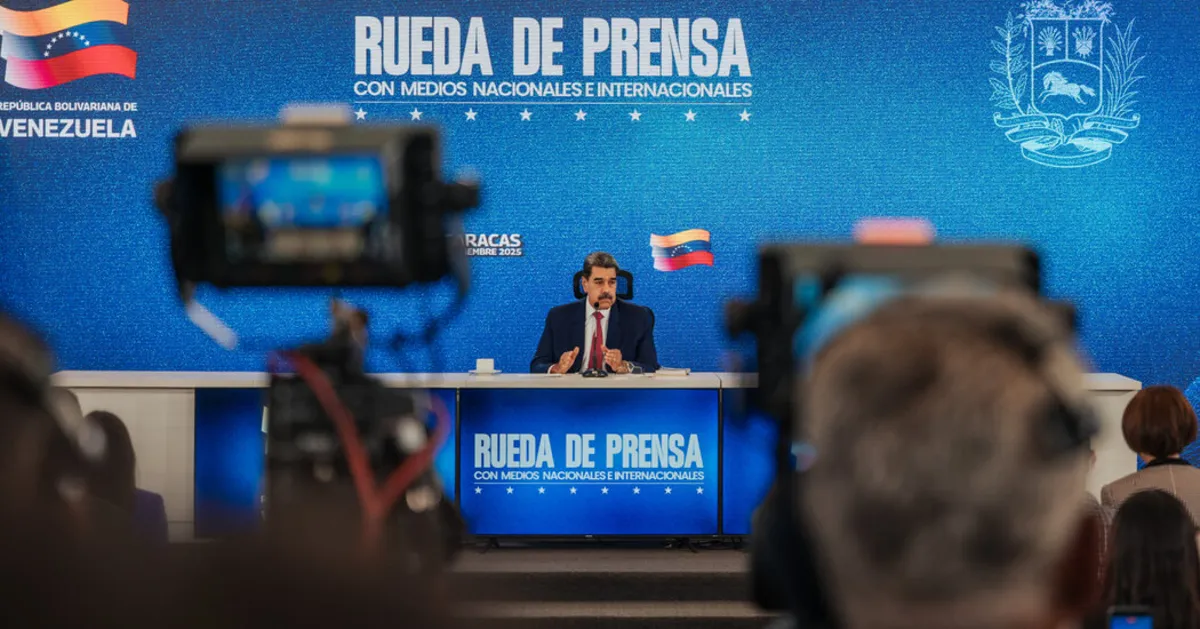
The recent military operations ordered by President Trump against a Venezuelan boat, allegedly involved in drug smuggling, have escalated tensions between the United States and Venezuela. Venezuelan President Nicolás Maduro condemned the attacks as “heinous crimes,” asserting that they violate both U.S. and international laws. This statement comes shortly after President Trump boasted about the destruction of a second vessel linked to drug trafficking in international waters.
On September 2, the U.S. military conducted an airstrike that resulted in the deaths of 11 people on a boat that officials claimed was engaged in drug trafficking. In a press conference held in Caracas, Maduro argued that if the passengers were indeed drug traffickers, they should have been captured rather than killed. He characterized the U.S. actions as a "military attack on civilians," emphasizing that the victims were not engaged in warfare and posed no military threat to any nation.
Maduro further accused the United States of seeking “regime change for oil,” rather than genuinely aiming to combat drug trafficking, which the Trump administration has publicly stated is a priority in the region. Following Maduro's remarks, Trump took to social media to announce another military strike on a boat he described as associated with “positively identified, extraordinarily violent drug trafficking cartels and narcoterrorists.” This second attack reportedly killed three individuals.
President Trump justified the military strikes by claiming that drug cartels present a significant threat to U.S. national security. He warned that those involved in transporting drugs that could harm Americans would be actively targeted. In a statement, White House spokeswoman Anna Kelly reiterated that Trump acted in accordance with the laws of armed conflict to protect the nation from drug-related threats.
According to reports, after the U.S. forces bombed the boat on September 2, Trump alleged that the individuals aboard were members of Tren de Aragua, a Venezuelan gang involved in drug trafficking. However, the New York Times revealed that the boat had changed its course and appeared to be retreating upon noticing a military aircraft. The Venezuelan government has been largely silent regarding the identities of the deceased and has dismissed the video footage of the bombing as fake.
While Venezuela has been implicated in these military operations, the majority of cocaine entering the United States is produced in neighboring countries like Colombia, Peru, and Bolivia. Data from the Drug Enforcement Administration indicates that approximately 74% of cocaine shipments in 2019 were trafficked through the Pacific, primarily from Colombia and Ecuador, while only 24% passed through the Caribbean. Furthermore, Venezuela is not a significant producer of fentanyl, a dangerous opioid primarily manufactured in Mexico.
Legal experts, including retired military attorneys, have raised concerns about the legality of the U.S. military's actions against suspected drug smugglers, arguing that such strikes lack a clear legal basis and precedent. Drug trafficking is not classified as a capital offense in the United States, and Congress has not sanctioned a war against drug cartels. Critics argue that individuals accused of drug trafficking should be arrested and prosecuted in criminal courts rather than being targeted with military force.
The escalation of military action against alleged drug traffickers in Venezuela highlights the complex and contentious relationship between the United States and Venezuela. As tensions rise, the legal implications of these military strikes and their effectiveness in combating drug trafficking remain hotly debated.